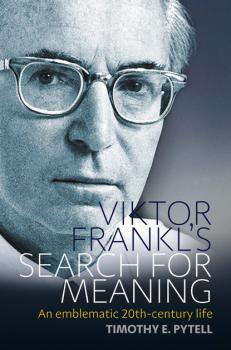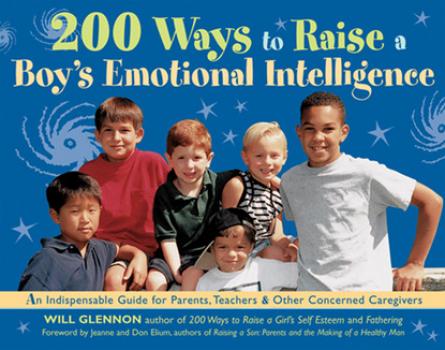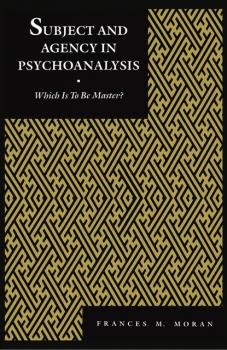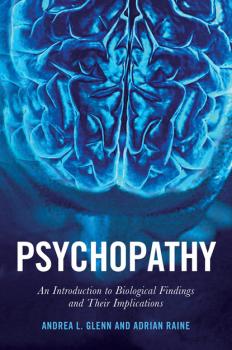ТОП просматриваемых книг сайта:
Общая психология
Различные книги в жанре Общая психология, доступные для чтения и скачиванияАннотация
First published in 1946, Viktor Frankl’s memoir Man’s Search for Meaning remains one of the most influential books of the last century, selling over ten million copies worldwide and having been embraced by successive generations of readers captivated by its author’s philosophical journey in the wake of the Holocaust. This long-overdue reappraisal examines Frankl’s life and intellectual evolution anew, from his early immersion in Freudian and Adlerian theory to his development of the “third Viennese school” amid the National Socialist domination of professional psychotherapy. It teases out the fascinating contradictions and ambiguities surrounding his years in Nazi Europe, including the experimental medical procedures he oversaw in occupied Austria and a stopover at the Auschwitz concentration camp far briefer than has commonly been assumed. Throughout, author Timothy Pytell gives a penetrating but fair-minded account of a man whose paradoxical embodiment of asceticism, celebrity, tradition, and self-reinvention drew together the complex strands of twentieth-century intellectual life.
Информация о книге
Автор произведения Timothy Pytell
Жанр Общая психология
Серия Making Sense of History
Аннотация
At the turn of the century, Sigmund Freud’s investigation of the mind represented a particular journey into mental illness, but it was not the only exploration of this ‘territory’ in the Austro-Hungarian Empire. Sanatoriums were the new tourism destinations, psychiatrists were collecting art works produced by patients and writers were developing innovative literary techniques to convey a character’s interior life. This collection of essays uses the framework of journeys in order to highlight the diverse artistic, cultural and medical responses to a peculiarly Viennese anxiety about the madness of modern times. The travellers of these journeys vary from patients to doctors, artists to writers, architects to composers and royalty to tourists; in engaging with their histories, the contributors reveal the different ways in which madness was experienced and represented in ‘Vienna 1900’.
Аннотация
[i][/i]This best-selling book is an easy-to-read guide for parents, using the latest thinking from the fields of positive psychology, NLP and hypnotherapy to help children overcome bedwetting more easily. The seven-day programme also comes with downloadable hypnotic audio recording ‘Dry Beds Now’, which is filled with positive suggestions to make changing this unwanted habit easier. This fully revised and updated edition includes improvements to the system, thanks to years of results and research from parents, GPs and Consultant Paediatricians. In surveys over 70% of children achieved dry nights following this system, and 85% of parents would recommend this system to others.
Аннотация
Like children themselves, development is dynamic. In the chronologically organized <strong>Child and Adolescent Development in Context</strong>, award-winning author Tara L. Kuther frames development research in real-life contexts, including gender, race and ethnicity, socioeconomic status, and more. Kuther presents highly relatable examples, vivid cross-cultural stories, and case studies of real individuals, consistently prompting students to reflect on chapter content with <em>What do you think?</em> questions. The book emphasizes three core themes: the centrality of context, the importance of research, and the applied value of developmental science; students will come away with an understanding of these themes that they will immediately be able to apply to their own lives and future careers.
Аннотация
A nationally recognized parenting expert and spokesperson for fathers, Glennon presents straightforward and well-researched-ways- both to nurture young men and, in turn, to teach them how to be nurturing. As we enter the twenty-first century, it is alarming how few real solutions are available to teach boys how to effectively connect with and manage their feelings and to use them constructively and not destructively.
Аннотация
"Surprisingly readable and studded with nuggets of insight."— The Daily Yomiuri «This insightful, well-written, fascinating book offers new understandings, not only of Japan, but also of American culture. It is essential for those in anthropology, psychology, sociology, and psychiatry who are interested in culture, as well as those in law and the business community who deal with Japan.»—Paul Ekman, Ph.D.,Director, Human Interaction Laboratory, Langley Porter Institute, University of California, San Francisco «[A] thoughtful cross-cultural study of development…His work can only enhance the still evolving psychoanalytic theory of preoedipal development as it is being derived mostly from psychoanalytic research on child-parent interaction in American families.»—Calvin F. Settlage, M.D. «Johnson's ambitious and exhaustive synthesis of anthropological and psychological treatments of dependency raises interesting questions. . . Johnson alerts the reader to issues of universalism and relativity and leads us to ask, 'What would psychoanalysis be like, if it had originated in Japan?'»—Merry I. White, Edwin O. Reischauer Institute of Japanese Studies, Harvard University «. . . Johnson's erudite and critical re-examination of human dependence succeeds to re-profile dependence meaningfully and revives our interest in this major aspect of human experience. Indeed, much food for thought for both psychoanalysts and anthropologists.»—Henri Parens, M.D., Philadelphia Psychoanalytic Institute Western ideologies traditionally emphasize the concepts of individualism, privacy, freedom, and independence, while the prevailing ethos relegates dependency to a disparaged status. In Japanese society, the divergence from these western ideals can be found in the concept of amae (perhaps best translated as indulgent dependency) which is part of the Japanese social fiber and pervades their experience. For the Western reader, the concept of amae is somewhat alien and unfamiliar, but in order to understand the Japanese fully, it is essential to acquire a familiarity with the intensity that accompanies interdependent affiliations within their culture. To place amae in the proper context, Johnson critically examines the western attitudes toward dependency from the perspectives of psychoanalysis, psychiatry, developmental psychology, and anthropology. Johnson traces the development of the concept and uses of the term dependency in academic and developmental psychology in the West, including its recent eclipse by more operationally useful terms attachment and interdependency. This timely books makes use of the work of Japanese psychiatrist Takeo Doi, whose book The Anatomy of Dependence introduced the concept of amae to the West. Johnson goes on to illuminate the collective manner in which Japanese think and behave which is central to their socialization and educational practices, especially as seen in the stunning success of Japanese trading practices during the past twenty years. A major emphasis is placed upon the positive aspects of amae, which are compared and contrasted with attitudes toward dependency seen among other nationalities, cultures, and groups in both Western and Asian societies. Complete with a glossary of Japanese terms, Dependency and Japanese Socialization provides a comprehensive investigation into Japanese behavior.
Аннотация
In low-income U.S. cities, street fights between teenage girls are common. These fights take place at school, on street corners, or in parks, when one girl provokes another to the point that she must either “step up” or be labeled a “punk.” Typically, when girls engage in violence that is not strictly self-defense, they are labeled “delinquent,” their actions taken as a sign of emotional pathology. However, in Why Girls Fight , Cindy D. Ness demonstrates that in poor urban areas this kind of street fighting is seen as a normal part of girlhood and a necessary way to earn respect among peers, as well as a way for girls to attain a sense of mastery and self-esteem in a social setting where legal opportunities for achievement are not otherwise easily available. Ness spent almost two years in west and northeast Philadelphia to get a sense of how teenage girls experience inflicting physical harm and the meanings they assign to it. While most existing work on girls’ violence deals exclusively with gangs, Ness sheds new light on the everyday street fighting of urban girls, arguing that different cultural standards associated with race and class influence the relationship that girls have to physical aggression.
Аннотация
Violent Accounts presents a compelling study of how ordinary people commit extraordinary acts of violence and how perpetrators and victims manage in the aftermath. Grounded in extensive, qualitative analysis of perpetrator testimony, the volume reveals the individual experiences of perpetrators as well as general patterns of influence that lead to collective violence. Drawing on public testimony from the amnesty hearings of the South African Truth and Reconciliation Commission, the book interweaves hundreds of hours of testimony from seventy-four violent perpetrators in apartheid South Africa, including twelve major cases that involved direct interactions between victims and perpetrators. The analysis of perpetrator testimony covers all tiers on the hierarchy of organized violence, from executives who translated political doctrine into general strategies, to managers who translated these general strategies into specific plans, to the staff—the foot soldiers—who carried out the destructive plans of these managers. Vivid and accessible, Violent Accounts is a work of innovative scholarship that transcends the particulars of the Truth and Reconciliation Commission to reveal broader themes and unexpected insights about perpetrators of collective violence, the confrontations between victims and perpetrators in the aftermath of this violence, the reality of multiple truths, the complexities of reconciliation, and lessons of restorative justice.
Аннотация
Psychoanalysis works with words, words spoken by a subject who asks that the analyst listen. This is the belief that underlies Francis Moran's rewarding exploration of a central problem in psychoanalytic theory—namely, the separation of the concepts of subject and agency. Subject and Agency in Psychoanalysis contends that Freud simultaneously employs two frameworks for explaining agency– one clinical and one theoretical. As a result, Freud's exploration of agency proceeds from two logically incompatible assumptions. The division between these assumptions is a part of Freud's psychoanalytic legacy. Moran reads the Freudian inheritance in light of this division, showing how Klein and Hartmann's theoretical concepts of subject are adrift from the subject who speaks in analysis. Moran also shows that while Lacan's subject provides more focus on this issue, Lacan reverts to the Freudian division in his use of logically contradictory assumptions concerning the location of agency. Drawing on contemporary theory development, from Lacanian innovations to the social theories of Anthony Giddens, Moran proposes a new and fertile approach to a fundamental problem, significantly narrowing the gap between psychoanalytic theory and practice.
Аннотация
The last two decades have seen tremendous growth in biological research on psychopathy, a mental disorder distinguished by traits including a lack of empathy or emotional response, egocentricity, impulsivity, and stimulation seeking. But how does a psychopath’s brain work? What makes a psychopath? Psychopathy provides a concise, non-technical overview of the research in the areas of genetics, hormones, brain imaging, neuropsychology, environmental influences, and more, focusing on explaining what we currently know about the biological foundations for this disorder and offering insights into prediction, intervention, and prevention. It also offers a nuanced discussion of the ethical and legal implications associated with biological research on psychopathy. How much of this disorder is biologically based? Should offenders with psychopathic traits be punished for their crimes if we can show that biological factors contribute? The text clearly assesses the conclusions that can and cannot be drawn from existing biological research, and highlights the pressing considerations this research demands.










